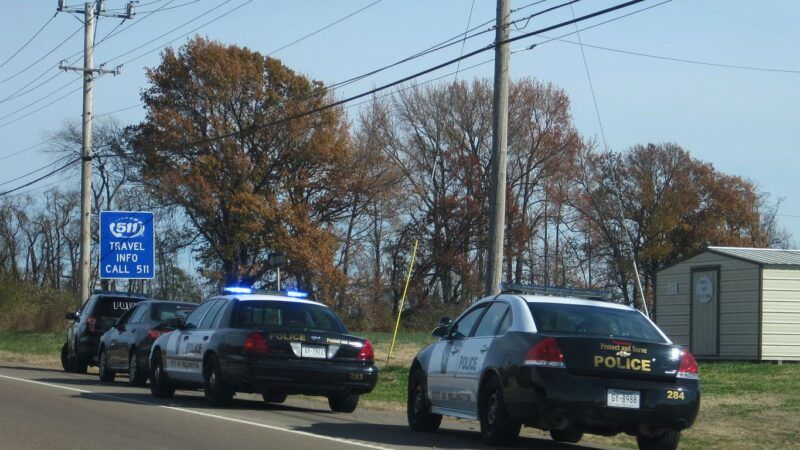The Excessive, Unjust Enforcement of Petty Traffic Laws Causes Too Many Americans To Lose their Driver's Licenses
Since lacking licenses can lead to lacking the ability to work (and pay fines), offenses like parking tickets or failing to come to a complete halt at stop signs can upend lives unjustly.

Most Americans' most frequent direct encounter with their government is through their government's agents stopping them for moving through the world in a motor vehicle in a disapproved manner, then fining them for some infraction—often one harmless to others.
Those fines need not be (and generally are not) adjusted to any poor citizen's actual ability to pay. As a result, many Americans find themselves criminals for not being able to afford these sorts of petty fines, commonly losing the ability to drive, which often means losing the ability to make a living to pay those fines without undue hardship. This situation got so bad in Virginia that at one point, one in six licensed drivers had their licenses suspended—not over behavior that actually harmed others, but often just over not paying the state the money it was trying to mulct from them.
The Wilson Center for Science and Justice at Duke University Law School analyzed the grim results of such petty law enforcement fines in the state of North Carolina in a new study.
It's a tough topic to find granular knowledge about nationally, as the study points out: "Unfortunately few states maintain any criminal legal debt data at all, much less regarding how fines and fees affect their residents. Similarly, national data does not exist concerning driver's license suspensions for non-driving-related reasons, and few states maintain such data. But we know that millions, at a minimum, have experienced such suspensions."
Focusing on their home state of North Carolina, the Wilson Center's researchers found around 1.2 million citizens had their licenses suspended dating back to the 1980s for either failing to pay a fine or failing to appear in court, with black and Latino citizens having suspensions disproportionate to their percentage of the population. A survey of state residents they conducted found 28 percent of those with suspended driver's licenses reported their suspensions had led them to be evicted from their homes. Many cannot possibly survive in America without the legal ability to drive, so they do so anyway—which can lead to more criminal prosecutions and fines merely for continuing to drive (even perfectly safely) without official permission.
One in 12 North Carolinians has some unpaid criminal court debt, which builds on itself; another $50 is added to your debt to the courts if you are 40 days late on paying your old debt. "The underlying causes that bring people to court" that lead to "failure to comply" orders for not paying assessed fines, "such as unpaid parking tickets, often pale in comparison to the amounts people end up owing."
Such "failure to comply" fines, the Wilson Center found, are more than 12 times as likely to be for traffic or other misdemeanors or infractions as for felonies. And they are, obviously, essentially crimes of poverty: Those making over $50,000 a year are 46 percent less likely to have license suspensions in North Carolina. (A judge in Tennessee in 2018 recognized that it's dumb and cruel public policy to punish people with such suspensions with no attempt to figure out ability to pay.)
As the study concludes, "The steady increase in license suspensions and fines and fees can create a vicious cycle of court debt and consequences that often last for years. Indeed, for many people it never ends. People can accumulate thousands of dollars in debt they cannot pay off, in part because maintaining a job is exponentially harder without a driver's license….These policies offer little to no public benefit—and in fact, are counterproductive; they create barriers to working and contributing to the economy, punish the poor, and disproportionately cause serious harms to families and communities of color."
That sort of punishment and disruption from combining poverty with minor traffic offenses should be rethought. Unfortunately, given how many localities are overly reliant on such petty fines to keep themselves afloat, it's a politically difficult fight.


Show Comments (129)